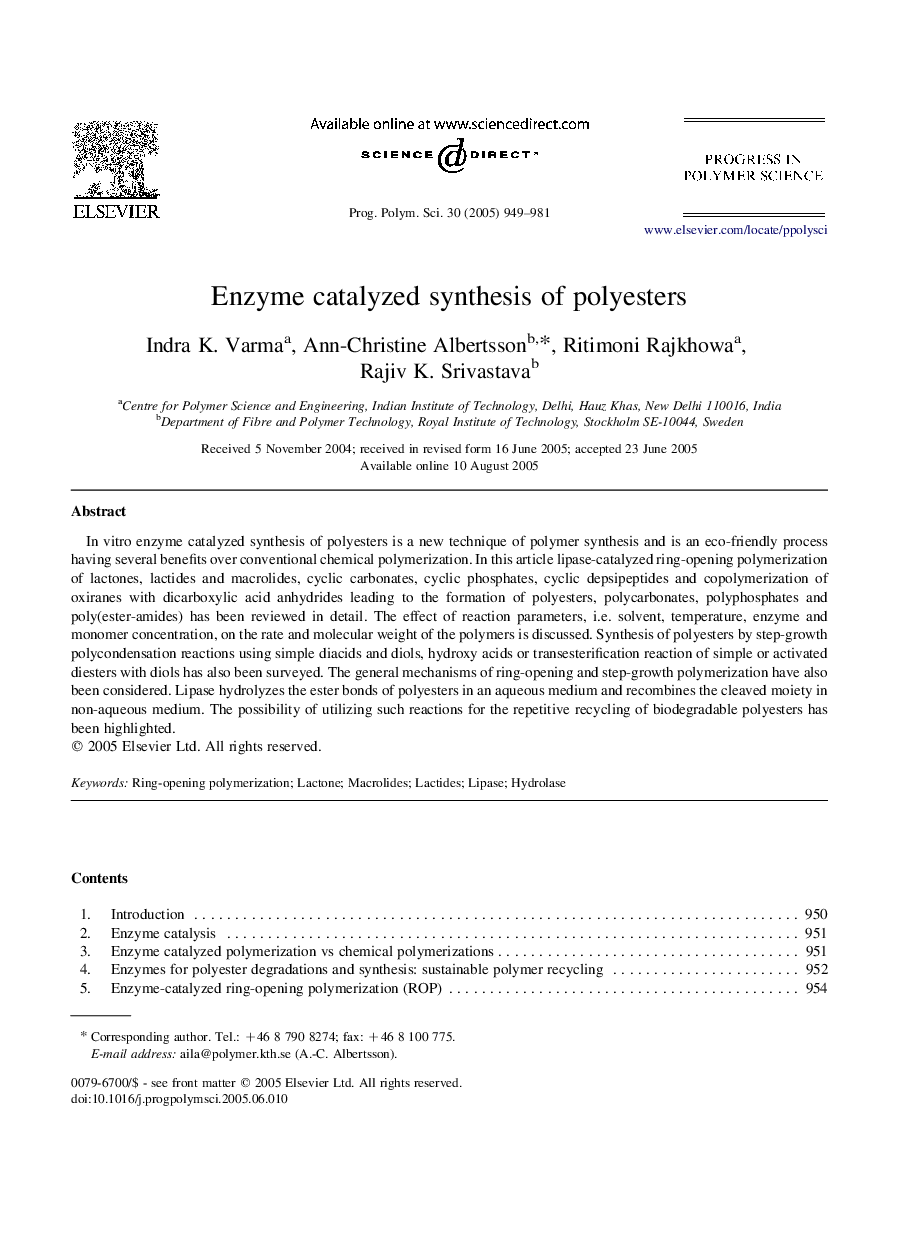| Article ID | Journal | Published Year | Pages | File Type |
|---|---|---|---|---|
| 9562441 | Progress in Polymer Science | 2005 | 33 Pages |
Abstract
In vitro enzyme catalyzed synthesis of polyesters is a new technique of polymer synthesis and is an eco-friendly process having several benefits over conventional chemical polymerization. In this article lipase-catalyzed ring-opening polymerization of lactones, lactides and macrolides, cyclic carbonates, cyclic phosphates, cyclic depsipeptides and copolymerization of oxiranes with dicarboxylic acid anhydrides leading to the formation of polyesters, polycarbonates, polyphosphates and poly(ester-amides) has been reviewed in detail. The effect of reaction parameters, i.e. solvent, temperature, enzyme and monomer concentration, on the rate and molecular weight of the polymers is discussed. Synthesis of polyesters by step-growth polycondensation reactions using simple diacids and diols, hydroxy acids or transesterification reaction of simple or activated diesters with diols has also been surveyed. The general mechanisms of ring-opening and step-growth polymerization have also been considered. Lipase hydrolyzes the ester bonds of polyesters in an aqueous medium and recombines the cleaved moiety in non-aqueous medium. The possibility of utilizing such reactions for the repetitive recycling of biodegradable polyesters has been highlighted.
Related Topics
Physical Sciences and Engineering
Chemistry
Organic Chemistry
Authors
Indra K. Varma, Ann-Christine Albertsson, Ritimoni Rajkhowa, Rajiv K. Srivastava,
